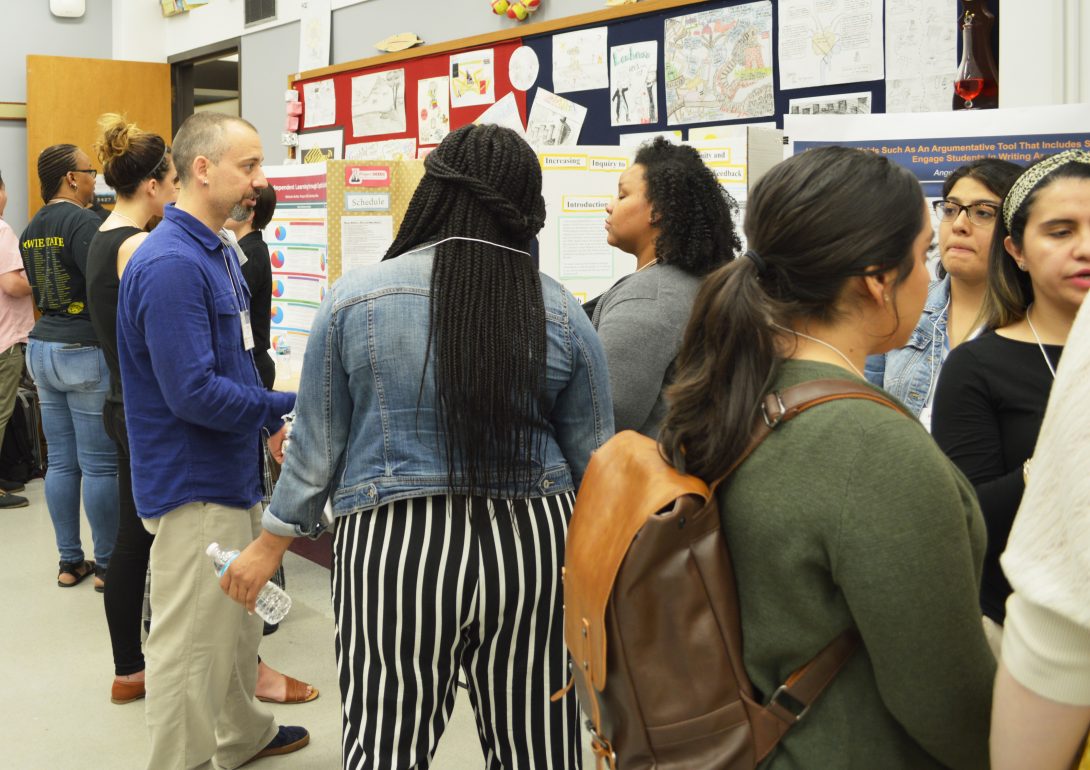Daniel Morales-Doyle named NAEd/Spencer Postdoctoral Fellow
Assistant professor of science education (Curriculum & Instruction) Daniel Morales-Doyle has been named a 2020 National Academy of Education (NAEd)/Spencer Postdoctoral Fellow.
Connecting Science Education to Social and Environmental Justice
Morales-Doyle’s research examines the potential for science education to act as a catalyst for social transformation by engaging youth in learning to do science and to critique science with and for just, sustainable communities.
“This fellowship attests to Dr. Morales-Doyle’s growing national stature as a researcher, but more importantly, his rise as an intellectual in the field of science education,” said Alfred Tatum, dean of the College of Education. “His growing corpus of work and how he shapes ideas that science is a tool of protection are noteworthy. He is one of UIC’s rising stars.”
As part of the fellowship, Morales-Doyle will be receiving a $70,000 award to assist his focus on connecting students’ science learning with issues of social and environmental justice.
“For example, when a chemistry class is working on a project about industrial pollution in their neighborhood, how do teachers deal with students’ questions about the biological effects of that pollution? How do they negotiate the politics of environmental racism? How do they decide how deep to delve into the relevant history of the neighborhood?” said Morales-Doyle. “Working with teachers as collaborators, I hope to elucidate some of the ways that teachers can navigate their responsibility to teach rich science curriculum while also attending to the social and political contexts of students’ lives.”
This award is an amazing honor and greatly deserved recognition of Morales-Doyle’s scholarship, said Maria Varelas, chair of the department of curriculum and instruction.
Disciplining Equity: Studying Science Teachers’ Work at Content Area Boundaries

This award is an amazing honor and greatly deserved recognition of Morales-Doyle’s scholarship, said Maria Varelas, chair of the department of curriculum and instruction.
His project, “Disciplining Equity: Studying Science Teachers’ Work at Content Area Boundaries,” will contribute to a greater understanding of practices by science teachers and students that facilitate, allow, limit or hinder boundary crossings among disciplines, which are necessary for equity and justice-centered science education to happen, Varelas said.
“Dr. Morales-Doyle is an emerging scholar of ample and remarkable depth whose cutting-edge research is helping move the field of science education in a critically needed direction where equity and justice become the cornerstones of practice and research and of their constitutive relationship,” Varelas said. “He is a superb scholar, a compassionate thinker, and both a researcher and a practitioner who is deeply concerned about, and strives for, facilitating the movement towards equitable and socially just science education.”
Morales-Doyle said his work has led him to study high school science curriculum, teaching and teacher education as situated within broader contexts of inequity. He began teaching science with a focus on social justice issues 17 years ago, with more than a decade of experience as a high school teacher in Chicago Public Schools, and the award is an acknowledgment of his efforts.
“This award is a small sign that issues of justice and equity now figure more prominently in mainstream discussions of science education than when I started,” he said. “I’m glad the field has moved in that direction and I appreciate the work that many of my colleagues have done to push it there.”
This year, 30 fellows were selected from a competitive pool of 221 applications from scholars of education. The fellowships are administered by the National Academy of Education, an honorary educational society, and they are funded by a grant to the Academy from the Spencer Foundation. The fellowship program has over 800 alumni, including many of the strongest education researchers in the field today.